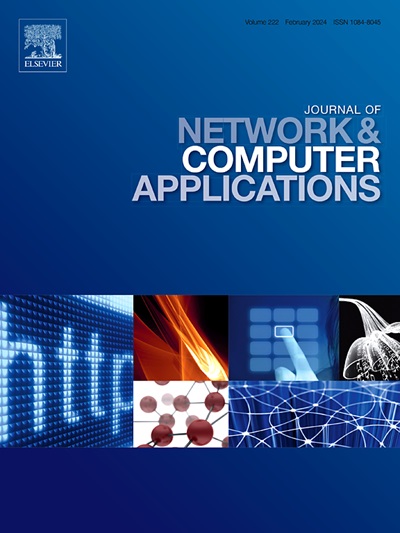利用分层机器学习模型加强 SDN 中的 DDoS 防御
IF 8
2区 计算机科学
Q1 COMPUTER SCIENCE, HARDWARE & ARCHITECTURE
引用次数: 0
摘要
软件定义网络(SDN)通过将控制平面与数据平面解耦,将控制集中在基于软件的控制器中来增强网络管理。虽然这种体系结构简化了网络管理,但它也引入了漏洞,特别是分布式拒绝服务(DDoS)攻击,这种攻击可能会使中央控制器不堪重负并中断网络操作。当前的DDoS防御机制通常基于传统的网络数据集,无法解决sdn特有的挑战,通常专注于高速率攻击,而忽略了其他关键类型。为了解决这些问题,我们提出了一种针对SDN环境量身定制的分层DDoS防御系统(hds),能够通过再培训适应各种网络条件。为了支持这一点,我们引入了SDN- dad,这是一个为SDN量身定制的数据集,包括各种攻击流量,例如合法流量,flash流量和各种DDoS攻击,包括针对应用程序和传输层的低速率,慢速和洪水攻击。此外,我们确定了攻击检测的最佳特征,以最大限度地减少SDN控制器上的计算负载。我们的hds模型对大范围DDoS攻击的检测准确率达到95%,对高速率攻击的检测准确率达到100%,确保了强大的防御,同时防止了高流量事件期间的瓶颈。这种方法增强了SDN环境对广泛的DDoS威胁的安全性和弹性,确保在不同的网络条件下进行强大的防御。本文章由计算机程序翻译,如有差异,请以英文原文为准。
Enhancing DDoS defense in SDN using hierarchical machine learning models
Software Defined Networking (SDN) enhances network management by decoupling the control plane from the data plane, centralizing control in a software-based controller. While this architecture simplifies network administration, it also introduces vulnerabilities, particularly to Distributed Denial of Service (DDoS) attacks that can overwhelm the central controller and disrupt network operations. Current DDoS defense mechanisms, often based on conventional network datasets, fail to address SDN-specific challenges and typically focus on high-rate attacks, overlooking other critical types. To address these issues, we propose a hierarchical DDoS defense system (HDDS) tailored for SDN environments, capable of adapting to various network conditions through retraining. To support this, we introduce SDN-DAD, a dataset tailored for SDN that includes diverse attack traffic, such as legitimate traffic, flash traffic, and a variety of DDoS attacks, including low-rate, slow, and flood attacks targeting both the application and transport layers. Furthermore, we identify optimal features for attack detection that minimize computational load on the SDN controller. Our HDDS model achieves 95% detection accuracy for a wide range of DDoS attacks, with 100% accuracy for high-rate attacks, ensuring robust defense while preventing bottlenecks during high-traffic events. This approach enhances the security and resilience of SDN environments against a broad spectrum of DDoS threats, ensuring robust defense across varying network conditions.
求助全文
通过发布文献求助,成功后即可免费获取论文全文。
去求助
来源期刊

Journal of Network and Computer Applications
工程技术-计算机:跨学科应用
CiteScore
21.50
自引率
3.40%
发文量
142
审稿时长
37 days
期刊介绍:
The Journal of Network and Computer Applications welcomes research contributions, surveys, and notes in all areas relating to computer networks and applications thereof. Sample topics include new design techniques, interesting or novel applications, components or standards; computer networks with tools such as WWW; emerging standards for internet protocols; Wireless networks; Mobile Computing; emerging computing models such as cloud computing, grid computing; applications of networked systems for remote collaboration and telemedicine, etc. The journal is abstracted and indexed in Scopus, Engineering Index, Web of Science, Science Citation Index Expanded and INSPEC.
 求助内容:
求助内容: 应助结果提醒方式:
应助结果提醒方式:


